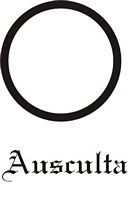 |
White Robed Monks of St. Benedict |
 |
White Robed Monks of St. Benedict |
Preparation ¦ Admissions ¦ Map of the Way ¦ Descriptions of Way Stations
Program Administration ¦ Financial Information
| Philosophy of Religion |
| Phenomenological Foundation |
|
Theology Curriculum Peace be with you.We humans from time immemorial invented theology, our feeble attempt grasp intellectually what actually can be only known — felt or sensed — experientially, the Mystery of God. We grew our various speculating theologies in response to our conceptions of our world: our families, our states, our environments. The historical Christ was a Jew, not a Christian. Water is a key element for humans, and more so for those of us in dry and arid lands, like Palestine. The historical Christ allegedly began his ministry by a water baptism by his cousin John. Our experience of Christ, now but a story centuries old and veiled in intrigue, politics and other myths, unfolds from this baptism. The God created in what Christians entitle the Old Testament is introduced at this scene: This is my beloved Son in whom I am well pleased. (Matthew 3:17). The Mystery of God as Father speaking about his Son to those who would hear we have imaged/imagined with his Holy Spirit depicted as a white Dove hovering overhead: three metaphors forming one metaphor for God. We later come to take of his Son's body and eat, and take of his Son's blood and drink. We named this event Eucharist, sharing at the Table of the Lord. Hence, we define the journey of Christian Theology, marked by the water of baptism, sacramental communion in what we term Eucharist, within the context of a triune God. We lump these three creations into another creation we label Church, a generic word for the assembly of people, in this case, what Christians term The People of God. There are many paths to ordination as there are many ordinations. The path mapped out herein is but one specific path toward ordination to the Priesthood in the Catholic tradition. Based upon our human experience, phenomenologically considered, we begin the journey by surveying the terrain, gleaning an appreciation of the historical background for the Christian myth. We when focus our attention on our self-conceived notion as being children of God and heirs of heaven, being in communion with God The Father, through His Son by the guidance of His Holy Spirit. We next travel into more speculative realms that are specifically Catholic, the Eucharistic (Mystical) Body that Catholics conceive themselves to be. Finally, we reach the New Jerusalem, where we put our preceding experiences together, perhaps gleaning a personal experience of what the story of the New Testament may be offering to those so inclined.
In Catholic Theology we can sense we are all but children of God, by whatever name we might label God. This theological appreciation of our relatedness to each other in the Human Family with a common Father or Source, enlightened by one particular historical figure, among many others, known as The Christ, we can come to realize by the grace of the Holy Spirit Eucharistic Presence in our own presence to each other — a constant practice, a ministry, to be sure. We can come to know, to experience and sense, our interdependence with one another and each other as one in the same yet different as we awaken to our humanity in our divinity and our divinity in our humanity. We evidence such an awakening by our presence to and practice of the information contained in The Sermon on the Mount (Matthew 5, 1- 12) and Paul's descriptive definition of love found in 1 Corinthians 12, 31-13, 8. |